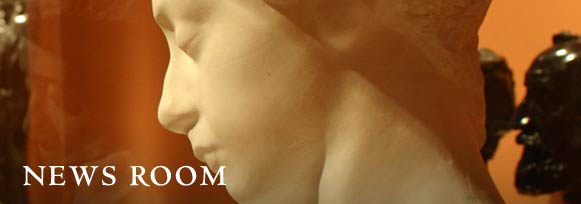African Masks from the Fowler Museum at UCLA on View at Stanford
Makishi: Mask Characters of Zambia
March 26 – June 29, 2008
Stanford, California — The Cantor Arts Center at Stanford University presents “Makishi: Mask Characters of Zambia” from March 26 through June 29. This exhibition of 24 wooden masks, selected from the collection of the Fowler Museum at UCLA, explores the drama and complexity of the masquerades in which the masks are used.
More than one hundred makishi, or mask characters, figure in the remarkable masquerade traditions of a constellation of ethnic groups living in the “Three Corners” region of Zambia, Angola, and the Democratic Republic of the Congo, in central Africa. Among the Chokwe, Mbunda, Lunda, Luvale/Lwena, and Luchazi peoples, makishi, which embody ancestral spirits, may assume human, animal, hybrid, or abstract appearances.
Although used during the enthronement of chiefs and at other sociopolitical events, makishi are primarily associated with mukanda, the complex and often lengthy process of initiating young boys into adulthood. During this crucial transformation, the ancestors return as makishi to guide, assist, protect, and educate the young boys in their initiation camp and to bring positive spiritual influences to the community hosting the mukanda. Women and uninitiated boys interact with makishi, but the masks are created and performed solely by initiated men.
The masks on display in this exhibition date from the late 19th to the 20th century. All are made of wood, and many are embellished with plant fiber, cordage, beads, and other materials that carvers use to make motifs and other subtle yet important features that convey makishi characters of different gender, age, social rank, and other traits.
This exhibition is curated by Manuel Jordán Pérez, independent scholar and former Cantor Arts Center curator. A lavishly illustrated book accompanies the exhibition. The book, written by Jordán, is available in the Cantor Arts Center Bookshop (88 pages, 82 color images, soft cover, $25).
Jordán will speak about the mask characters and associated masquerade traditions on Thursday, March 27 at 7 pm. This is the 2008 Ruth K. Franklin Lecture on the Arts of Africa, Oceania, and the Americas. The lecture is presented in the Cantor Arts Center auditorium, free, with open seating.
The exhibition and its accompanying publication were made possible in part by funding from the National Endowment for the Arts and Manus, the support group of the Fowler Museum. At Stanford, the exhibition’s presentation is made possible by the Halperin Exhibitions Fund.
VISITOR INFORMATION: Cantor Arts Center is open Wednesday – Sunday, 11 am – 5 pm, Thursday until 8 pm. Admission is free. The Center is located on the Stanford campus, off Palm Drive at Museum Way. Parking is free after 4 pm and all day on weekends. Information: 650-723-4177, museum.stanford.edu.
# # #
PUBLICITY IMAGES
Selected high-resolution images are available for publicity use
Call 650-725-4657 or email akoster@stanford.edu



